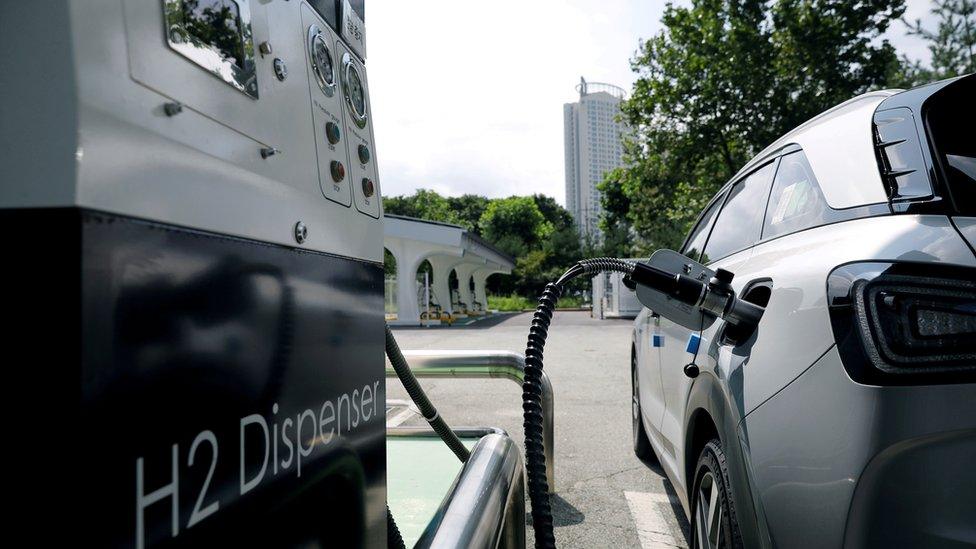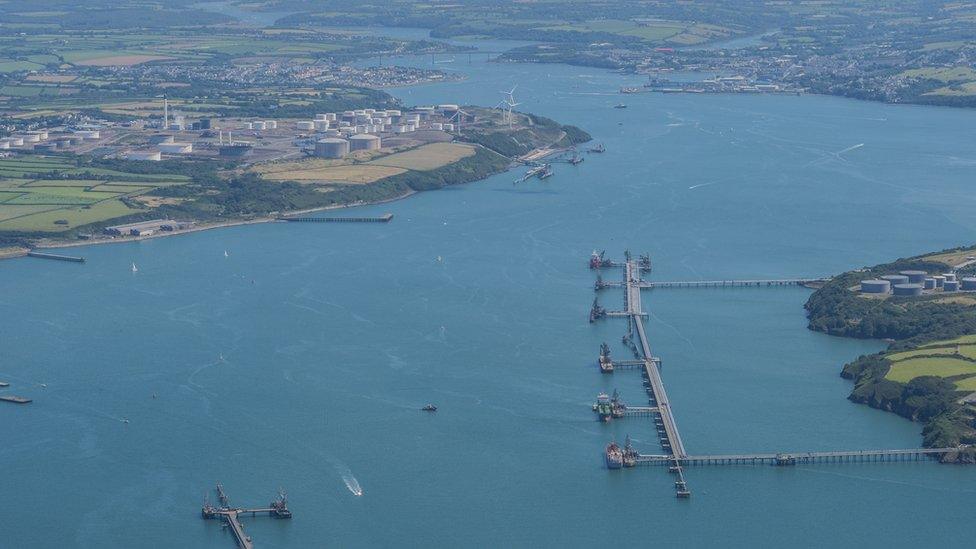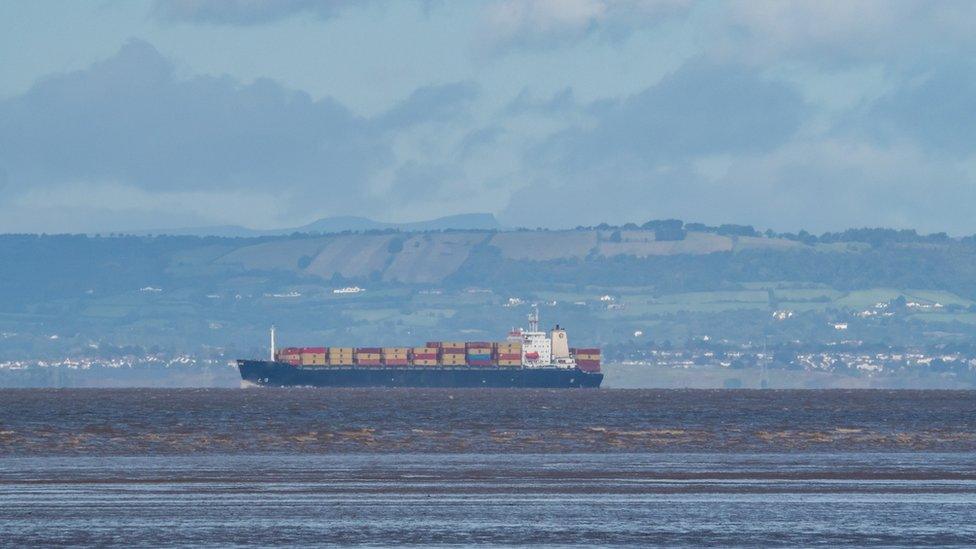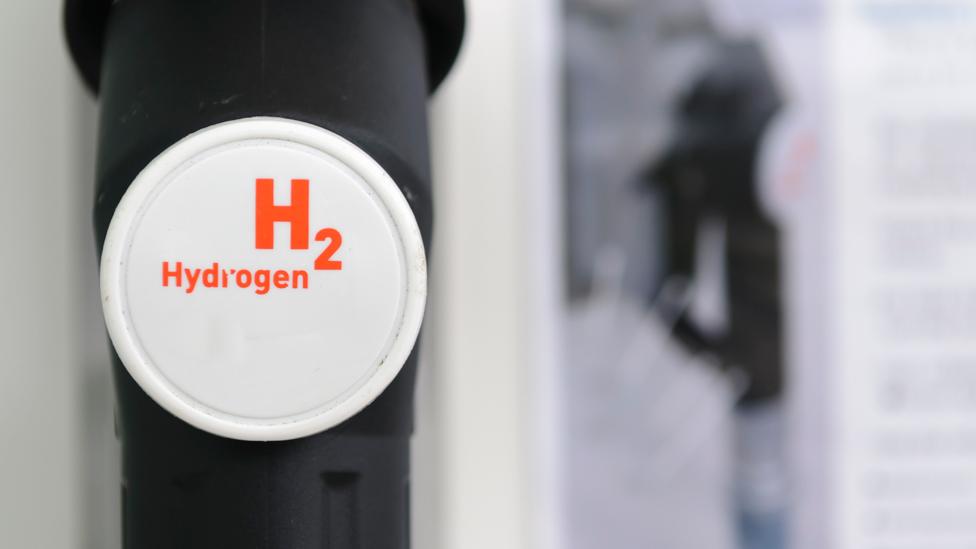Green energy: Fears slow hydrogen strategy threatens sector
- Published
- comments

Hydrogen fuelled cars have been on UK roads in small numbers for decades
The slow adoption of hydrogen fuel in the UK risks businesses moving overseas, a utilities boss has warned.
Wales and West Utilities said the country's competitiveness could be at risk as a result.
Director of regulation, Sarah Williams, said firms could be forced to look abroad for cleaner fuel sources "if we, as a country, don't make some decisions around hydrogen soon".
The UK government said it was assessing hydrogen's safety and value for money.
Hydrogen is considered to be a clean fuel because it does not release harmful gases when burnt, with hydrogen vehicles emitting only water.
But it is extracted using an energy-intensive process that emits carbon dioxide and to make so-called green hydrogen, the electrolysers used to split water molecules must be powered by renewable sources such as wind or solar.
As the owner of 21,750 miles (35,000km) of gas pipes, Wales and West has a commercial interest in pursuing the roll-out of hydrogen as a fuel.
The advent of widescale hydrogen fuel was "the most exciting time ever" for the energy market, said Ms Williams.
She added: "I think our competitiveness could be potentially at risk. The [UK] government needs to make a decision about allowing blended hydrogen into existing pipe networks.
"If we can get up to 20% hydrogen into our existing pipes, we could save six million tonnes of carbon, which is equivalent to taking two-and-a-half million cars off the road."

The Prince Madog, a research vessel co-owned by Bangor University is expected to reduce its carbon emissions by 60% with a £5.5m hydrogen power retrofit
Subsidies similar to those that previously incentivised wind power could help bring hydrogen production costs down "by about 60%" over the next decade, she said.
The Department for Energy Security and Net Zero said it was "building the necessary evidence base to determine whether hydrogen blending offers strategic and economic value and meets the required safety standards.
"Value for money will be a key factor in determining whether to enable the wider roll-out of blending on to the gas network and we will publish findings in due course."
Major plans for a £31m green hydrogen plant in Bridgend were recently set back went the council said it could no longer afford its £6.5m contribution.
The Hybont plant in Brynmenyn would produce "electrolytic hydrogen" for use in vehicles including bin lorries and buses.
"There's scope for it to be used as a heavy transport fuel, so for buses, heavy goods, vehicles, refuse collection vehicles," said George Dodd, the senior vice-president of the Japanese-owned developer, Marubeni Europe.
"But [it could] also be used in some industrial processes which use hydrogen… or as a fuel for heating."
Marubeni operated hydrogen-powered vehicles in the area to demonstrate the technology, but some residents demonstrated against the plans.
Mr Dodd said the firm had undertaken a community engagement process to try to reassure people about the safety measures that accompany hydrogen production.

KEEPING THE FAITH: Can Wales stay at the top of their game?
KIRI'S TV FLASHBACK: Kiri Pritchard-McLean dives into the TV archives

- Published13 March 2023

- Published22 April 2022

- Published11 October 2022

- Published26 February 2020

- Published14 September 2017
